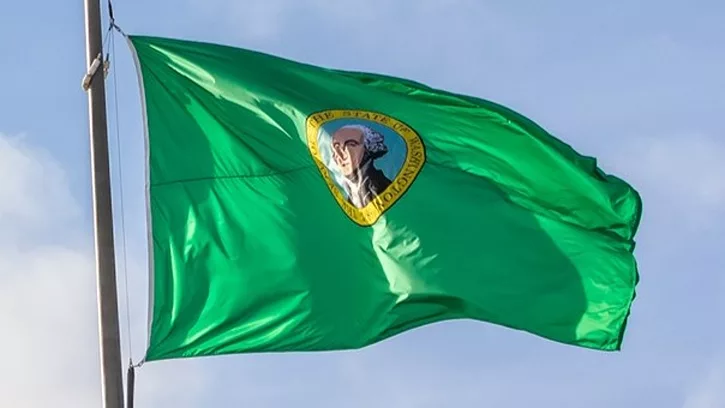OLYMPIA, WA – Washington lawmakers and the governor Tuesday got the grim state revenue news they’ve been expecting.
Estimates show tax collections for the two-year operating budget that begins July 1 will be hundreds of millions of dollars less than what they assumed when they passed the budget that Gov. Bob Ferguson signed last month.
Revenues are lagging as consumers grow cautious and businesses retrench in response to the Trump Administration’s shifting approach on tariffs and trade. Many people are also tightening their spending while Congress ponders cuts to federal programs like Medicaid and food stamps.
The decline in receipts will force the state to draw down savings, but Ferguson isn’t summoning the Legislature into a special session to respond.
At least not yet.
“While this revenue forecast is disappointing, it is not surprising. At this time, I do not anticipate calling a special session,” Ferguson said in a statement. “We are closely monitoring developments from the federal government that could force me to revisit that question. We will also carefully review the next revenue forecast in September.”
Democratic and Republican budget writers shared the not-quite-yet assessment after Washington’s chief economist, Dave Reich, delivered the quarterly estimates to the Economic and Revenue Forecast Council.
“Certainly, I think we don’t have to come back for a special session,” said Sen. June Robinson, D-Everett, the lead budget writer in the Senate. “I don’t see any reason today that the governor would ask us to do that, but that is his prerogative, not ours.”
Rep. Ed Orcutt, R-Kalama, the Republican on the House Finance Committee, pointed out that lawmakers will begin their next scheduled session only about six months into the next biennium.
“When we come back in January, we would have time to make some adjustments in the budget to make sure that we do not end up going negative by the end of the biennium,” he said.
It will be a different story if the downward trend in collections is repeated in the September and November forecasts, he said.
By the numbers
Tuesday’s sobering update follows a tense legislative session in which the Legislature’s Democratic majority and the first-term Democrat governor overrode Republican opposition to approve spending reductions and tax increases to counter a shortfall Ferguson pegged at $16 billion.
That final budget calls for $77.8 billion in spending across government, including public schools and colleges, health care, social services, housing, corrections, and environmental protection.
It paid the tab with $71 billion in tax collections plus more than a billion in cash reserves and roughly $4.3 billion from new and higher taxes that will begin to kick in later this year. The state will end the fiscal cycle with $80 million in cash reserves and $2 billion in its emergency, or rainy day, fund.
Tuesday’s forecast puts a kink in the equation.
Setting aside the anticipated boost from the new taxes, it shows the state will haul in $490 million less in the 2025-27 budget, and revenues will drop another $638 million in the 2027-29 cycle. However, the net decline is pegged at $720 million because revenues for the current budget will be $407 million higher than forecast in March.
When all the adding and subtracting is done, the state’s general fund will be operating with razor-thin savings.
“We believe the budget can weather the negative economic impacts we see in this forecast driven by federal action,” state Rep. Timm Ormsby, D-Spokane, chair of the House Appropriations Committee, said in a statement.
Rep. Travis Couture, R-Allyn, the lead Republican budget writer for House Republicans, said the majority party’s overspending, not federal policies, are to blame for the situation.
“This crisis was made in Olympia, not Washington, D.C.,” he said. “Slower growth in sales tax and real estate tax should have been a flashing red light. Instead, Democrats plowed ahead with the largest budget in state history, no cushion, no discipline, and no plan. They spent us into a deficit before the ink even dried.”
Ferguson has already directed state agencies to look for more cuts in their budgets.
“This will not be easy. We already made many difficult decisions last session,” he said. “Washingtonians expect us as leaders to make the tough decisions to live within our means and still deliver core services.”
Bracing for federal fallout
Meanwhile, the governor met with six other statewide elected officials Tuesday morning to discuss how best to respond if the Trump administration and Congress stanch the flow of federal funds to the state.
Since taking office, the administration has delayed, frozen, canceled, or threatened to block numerous grants, in some instances triggering legal action by Washington and other states.
And the Republican-controlled Congress is considering proposed budget legislation that would sharply reduce federal funds for Medicaid, food assistance and other significant programs.
“We explored strategies for how to best protect core services for Washington communities reliant on federal funding without giving in to the Trump Administration’s attacks,” Ferguson said in a statement after the meeting.
State Treasurer Mike Pelliciotti, Secretary of State Steve Hobbs, Lt. Gov. Denny Heck, Attorney General Nick Brown, Superintendent of Public Instruction Chris Reykdal and Auditor Pat McCarthy attended the 90-minute confab at the executive residence on the Capitol campus.
Commissioner of Public Lands Dave Upthegrove and Insurance Commissioner Patty Kuderer could not attend but sent top staff.
The meeting was closed to reporters.
This story first appeared on Washington State Standard.
